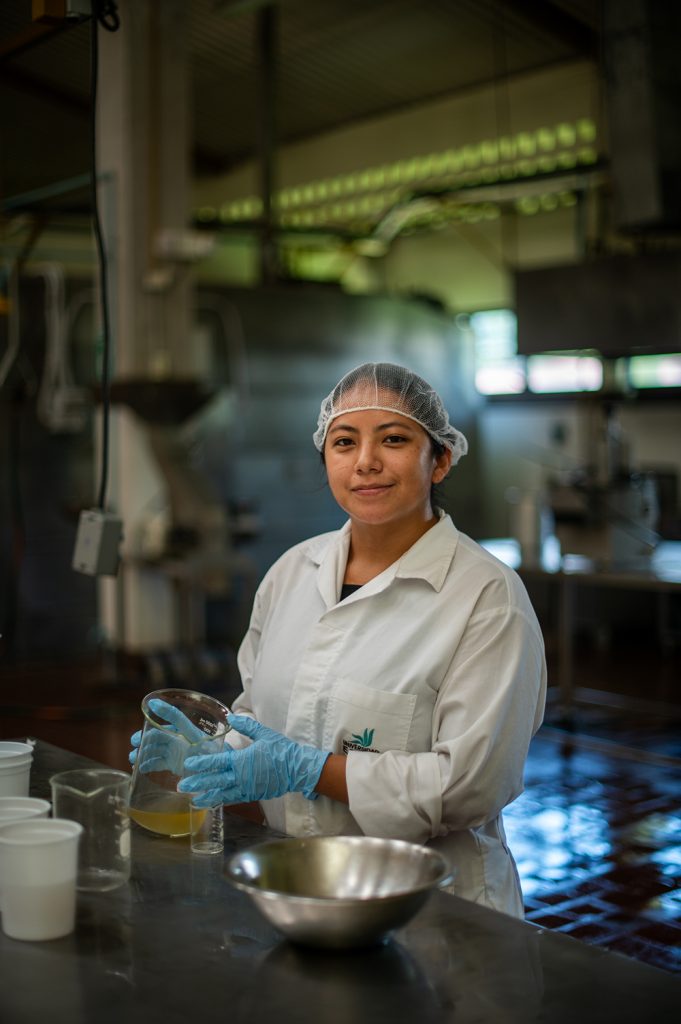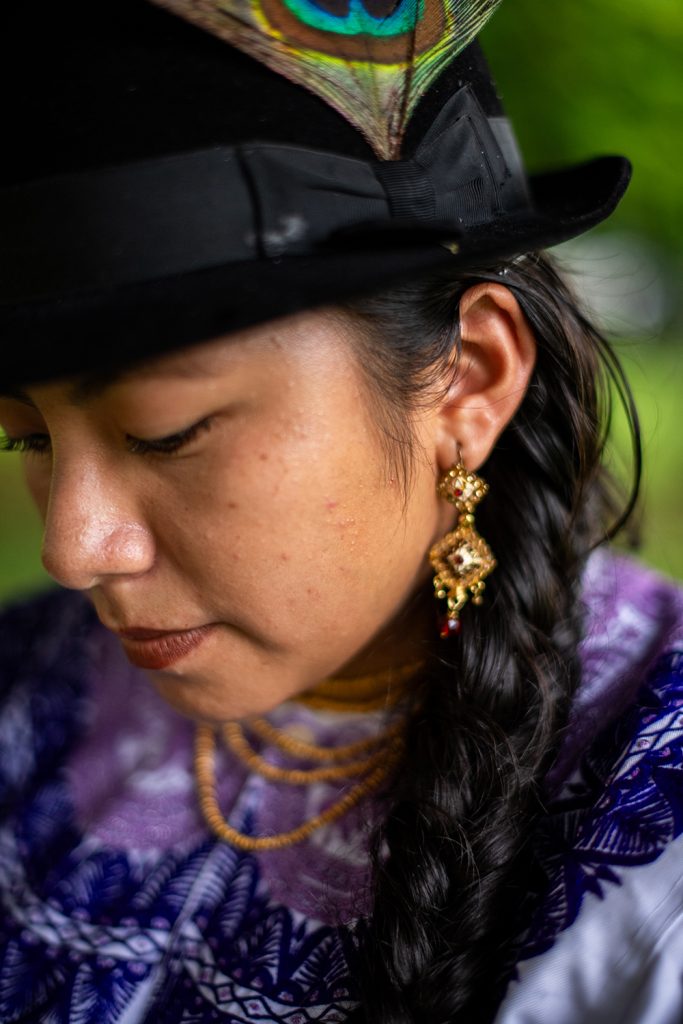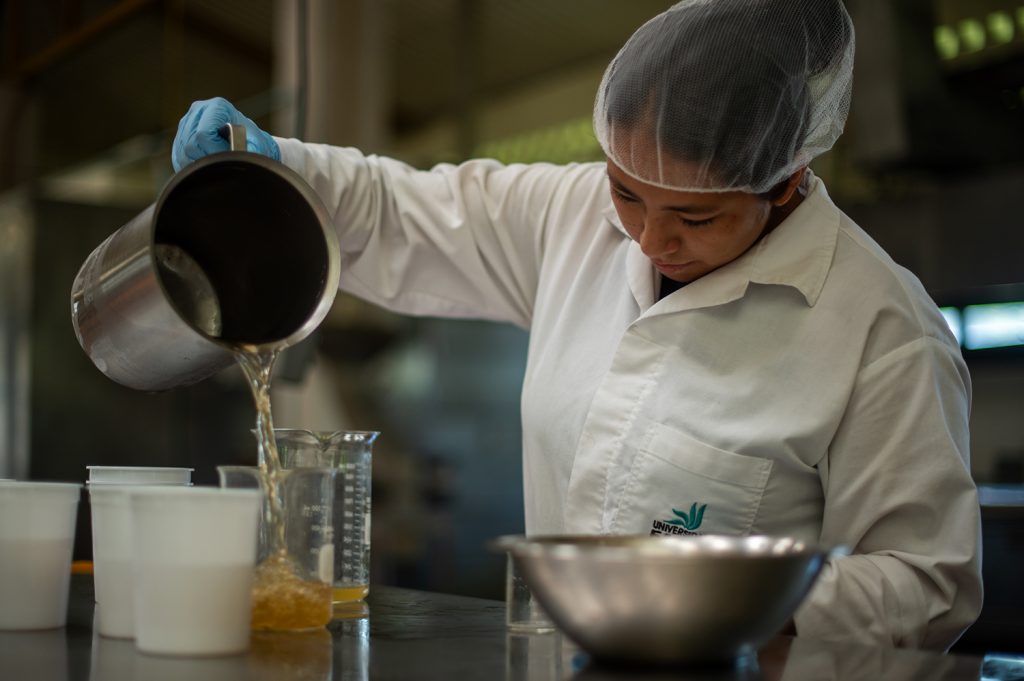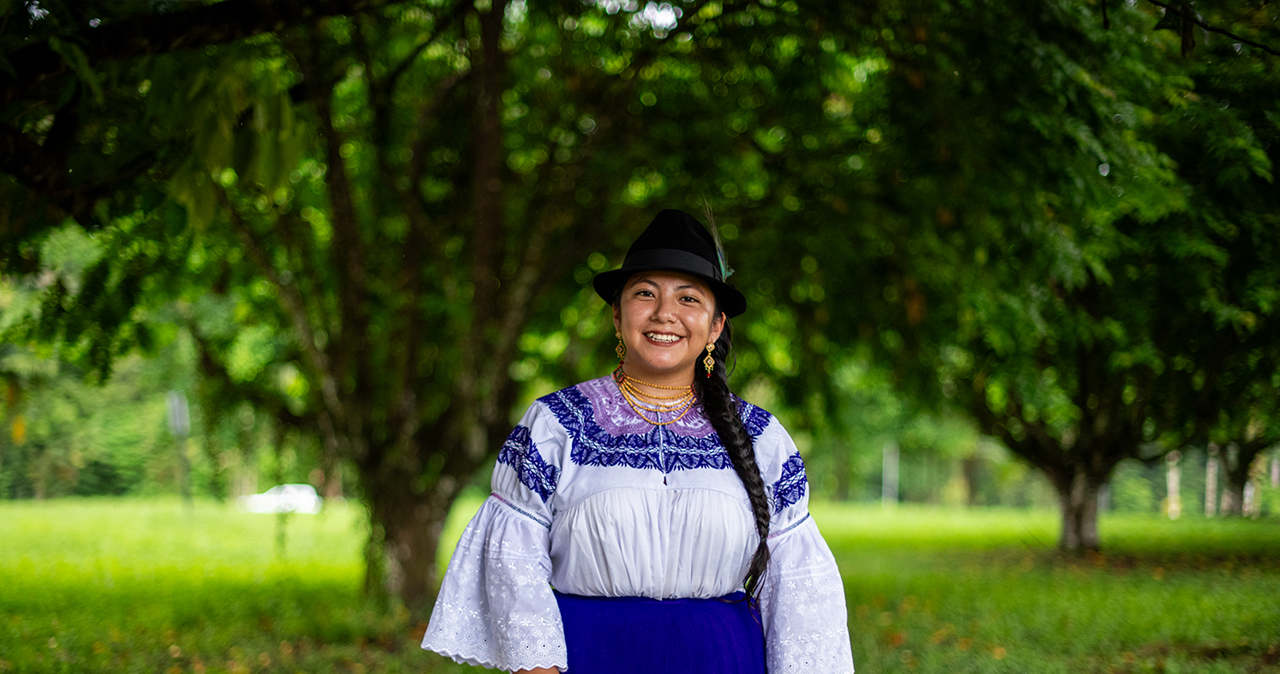Born in an indigenous community in the northern highlands of Ecuador, Jessenia Mármol (Class of 2024) has always had a special connection to the land, especially with the vibrant mountains that watched her grow. The altitude and cold climate of her home of Zuleta, situated at over 2,700 meters above sea level, shaped the landscape where she began to nurture her vocation. It was her grandparents, Rosa and Mariano, who taught her to love the soil she walked on, to care for animals, and to recognize the value of crops in feeding a family and an entire community.
As a child, her parents migrated to nearby cities in search of better job opportunities, and the family remained separated for a long time. Later, she moved to another city to begin studying agronomy, but shortly after starting her older sister heard about EARTH University. She told Jessenia, “This is for you, apply!” After much effort, Jessenia was accepted. But before she could leave for Costa Rica to begin her studies, several events occurred that helped her grow as a person with more empathy, a greater awareness of her community’s needs, and a deep connection to her roots.

As life in the city was expensive, her parents had returned to their village and opened a small restaurant, where they sold traditional foods from the region. Jessenia helped with daily tasks, and it was there, while working as a cashier and waitress, that she observed how the crops she had cared for since childhood transformed into nutritious food for her parents’ customers.
Due to the COVID-19 pandemic, her family had to close the business and seek different ways to survive. Amid the global chaos and uncertainty, Jessenia saw an opportunity to use her love for agriculture to obtain food. She created a small garden where she planted basic crops essential for the sustenance of her loved ones. Additionally, the family began baking bread, which they sold in various places around the village, including the higher parts of the mountains, where Jessenia noticed many elderly people living in isolation. Through the close relationships she developed with these individuals, she connected with her understanding of the urgent task of finding solutions for communities to have better and greater access to basic foods.
In 2021, after learning these life lessons, Jessenia arrived at the Guácimo Campus with a suitcase full of inspiration, her traditional Kichwa clothing, and face masks. After spending a few days in quarantine to protect the EARTH community, she integrated into a university population that filled her with curiosity and expectation. She faced a completely different world. Her roommate was from Zambia and was just learning Spanish. Jessenia—known for her energy and ease of speaking—learned to moderate herself and communicate more slowly. Cultural differences became constant learning opportunities, and academic challenges strengthened her desire to return to Ecuador and contribute meaningfully to her community.
For the third-year professional Internship, Jessenia traveled to the Tuscany region in Italy. There, at an organic farm, she learned about pig and vegetable production. It was in that setting, thousands of kilometers away from her home, that her indigenous identity grew stronger. Dressed in her traditional attire, she shared the stories of Zuleta and her Kichwa language with the visitors to the farm’s agritourism project. She discovered the fascination her culture awakened in others, and that contact made her more aware of the richness of her cultural heritage.
She is now working on a project she named Allpamanta, a Kichwa word meaning “from the earth.” This project, which is among the finalists for the 2024 Sustainability Award, one of the honors given by EARTH University for the development of new projects, focuses on utilizing medicinal plants to create infusions and other food products. With a vision centered on community resilience, Allpamanta aims to use these plants, often considered weeds, by incorporating them into innovative products like kombucha and potato cookies, generating added value from local resources and preventing waste.
The project also has a significant social component. Jessenia’s goal is to establish medicinal plant mandalas in her community, involving her neighbors in every stage, from planting to processing and marketing the products. These mandalas will not only serve as cultivation spaces but also as educational resources and economic opportunities for locals, who often face economic limitations that force them to migrate to cities, as happened to her parents.

Additionally, Allpamanta seeks to close the production cycle by using by products for composting, allowing for a sustainable process from field to food processing. Jessenia’s experience at EARTH has provided her with key tools to evaluate both the economic and environmental impact of the project, ensuring that her business proposal is not only viable but also beneficial for the community and the environment.
“If I don’t win the Sustainability Award, I know I’ve already gained a strategy to help my community in the future. The University has allowed me to strengthen those foundations of resilience, communication, and research. Most importantly, it has taught me not to stay silent when I can raise my voice,” she says.

With each lesson, Jessenia reinforces her desire to return to her community and inspire other young indigenous women who, like her, dream of achieving more for their families and their towns. Her goal is clear: to contribute to the development of her village, apply everything she has learned about sustainable agriculture, and help others in rural areas who dream of a better future.
